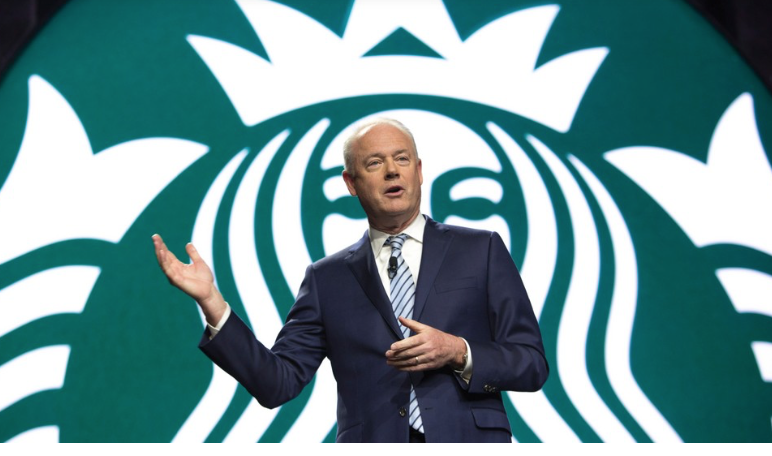CommentsINFLATION - Starbucks on Tuesday reported a 31% increase in profits during the final three months of 2021.
The massive Seattle-based coffee chain nevertheless announced plans to further hike prices this year, drawing outrage from critics who say the company is pushing higher costs onto consumers to pad its bottom line.
Starbucks CEO Kevin Johnson—who saw his compensation soar by 39% to $20.4 million in 2021—told investors during the company's earnings call Tuesday that "supply-chain disruptions" and rising labor costs are to blame for the coming price increases, of which he suggested there will be several.
"We have additional pricing actions planned through the balance of this year, which play an important role to mitigate cost pressures including inflation," said Johnson, who also touted the company's "strong revenue growth" in the quarter.
Starbucks' revenue grew to $8.1 billion at the tail-end of 2021, a 19% jump compared to the previous year.
To progressive observers, Starbucks' announcement of price hikes fits a pattern of U.S. corporations—in sectors across the economy—raising costs for consumers while raking in record profits, boosting executive pay, and squeezing regular employees. Starbucks employees nationwide are increasingly fighting back against their low wages and poor working conditions by launching union drives.
Historian Andy Lewis argued that Starbucks' explanation for the impending price increases amounts to nothing more than "word salad to hide corporate greed."
The consumer advocacy group Public Citizen, for its part, responded with outrage to Starbucks increasing prices for customers after giving its CEO a nearly 40% raise last year.
During testimony before the House Energy and Commerce Committee on Wednesday, Rakeen Mabud of the Groundwork Collaborative noted that "in sector after sector, in company after company, corporations are jacking up prices on consumers and using concerns about inflation as cover to do so."
"We see that in Kimberly-Clark taking advantage of the pandemic to raise prices on masks," the economist said. "We see Proctor & Gamble using the fact that they sell essential goods that families depend on like diapers to raise prices in this moment of crisis. And we even see companies like McDonald's raising prices on consumers even as they enjoy massive increases in sales."
"So in short," Mabud added, "this is a really broad-based problem—it's unfortunately not limited to a specific sector of the economy."
(Jake Johnson is a staff writer for Common Dreams where this article was published.)






